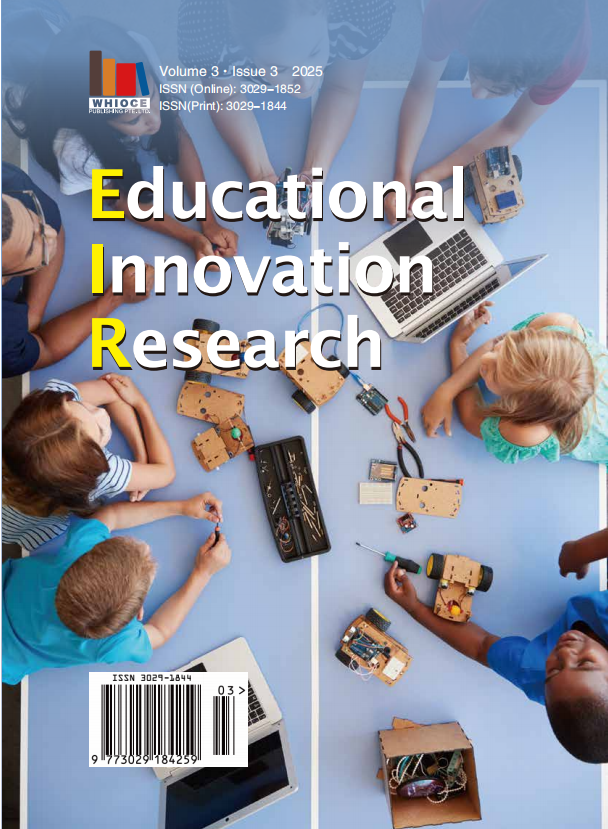Research on the Innovative Path of Art Education Integration Empowered by Artificial Intelligence
DOI:
https://doi.org/10.18063/eir.v3i3.846Keywords:
Artificial intelligence, Art education, Innovation path, Educational model, Personalized learningAbstract
With the rapid development of artificial intelligence technology, especially in the field of education, the application of intelligent technology is redefining the traditional education model, particularly in art education. Intelligent empowerment not only enriches teaching methods, but also promotes the innovation of educational content and methods. This paper explores the integrated and innovative paths of intelligent AI technology in art education, analyzes the applications in aspects such as intelligent assisted design, creative expression and personalized learning, proposes optimization strategies for art education models based on intelligent AI, and discusses the application and challenges of intelligent AI in combination with practical cases. Research shows that the integration of intelligent AI not only enhances teaching efficiency and learning experience but also promotes the improvement of students’ creativity and individualized development, providing new ideas for the modernization of art education.
References
Lu P, 2024, Research on the Path of AIGC Empowering Traditional Arts and Crafts. Art and Design (Theory), 2(12): 87–88.
Qu H, 2024, Innovation in Art and Design Education from the Perspective of “Humanistic Intelligent Manufacturing”: The Two-Way Empowerment of Creative Thinking and Cultural Innovation in the Era of Artificial Intelligence. Art and Design (Theory), 2(12): 134–136.
Yang Y, Liu C, 2024, Film and Television Creation under the New Quality Productivity: The Innovative Logic and Path Empowered by Artificial Intelligence – A Review of the Theme Forum of the 31st Beijing International Film Festival for College Students. Film Review, (22): 44–46.
Liang L, 2024, The Application of Artificial Intelligence Technology in College Art Education. Art Education Research, 2024(22): 109–111.
Du C, Zhang R, Liu S, 2024, Analysis of the Mechanism and Path of Artificial Intelligence Comprehensively Empowering China’s Modern Industrial System. Economic Review, 2024(11): 36–45.
Zhu L, Zhao Z, Hu X, 2024, Research on the Model and Strategy of Normal Students’ Willingness to Adopt Artificial Intelligence in Education: An Analysis of 3,671 Questionnaires from Pilot Universities Promoting the Construction of the Teaching Staff with Artificial Intelligence. Education Review, 2024(11): 21–29.
Wang L, 2024, Research on the Impact of New Generation Artificial Intelligence Technology on the Construction of Innovative Teaching Staff in Regular Undergraduate Programs. University, 2024(31): 119–122.
Sun L, Sun W, He J, 2024, Artificial Intelligence Drives the Value Reconstruction and Business Model Innovation of the Digital Creative Industry: Exploring the Transformation and Reshaping of the Digital Cr eative Industry by Artificial Intelligence. Journal of Hubei University of Education, 41(10): 71–75.
Zhang Y, 2024, Exploration of the Reconstruction Path of the Student Evaluation System in Artificial Intelligence Education for Normal School Students. Journal of Anyang Normal University, 26(05): 139–143.
Wang Z, Rao X, 2024, ChatGPT Empowering Art Education: Opportunities, Challenges and Development Paths. Journal of Northwest Adult Education College, (05): 107–112.

